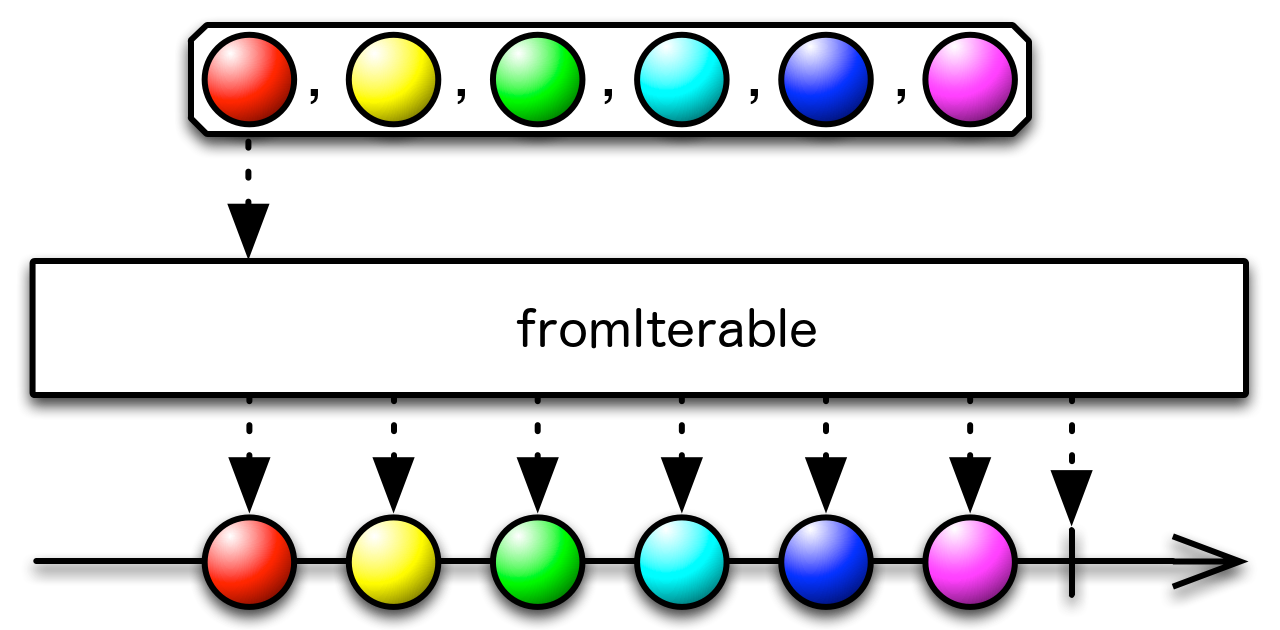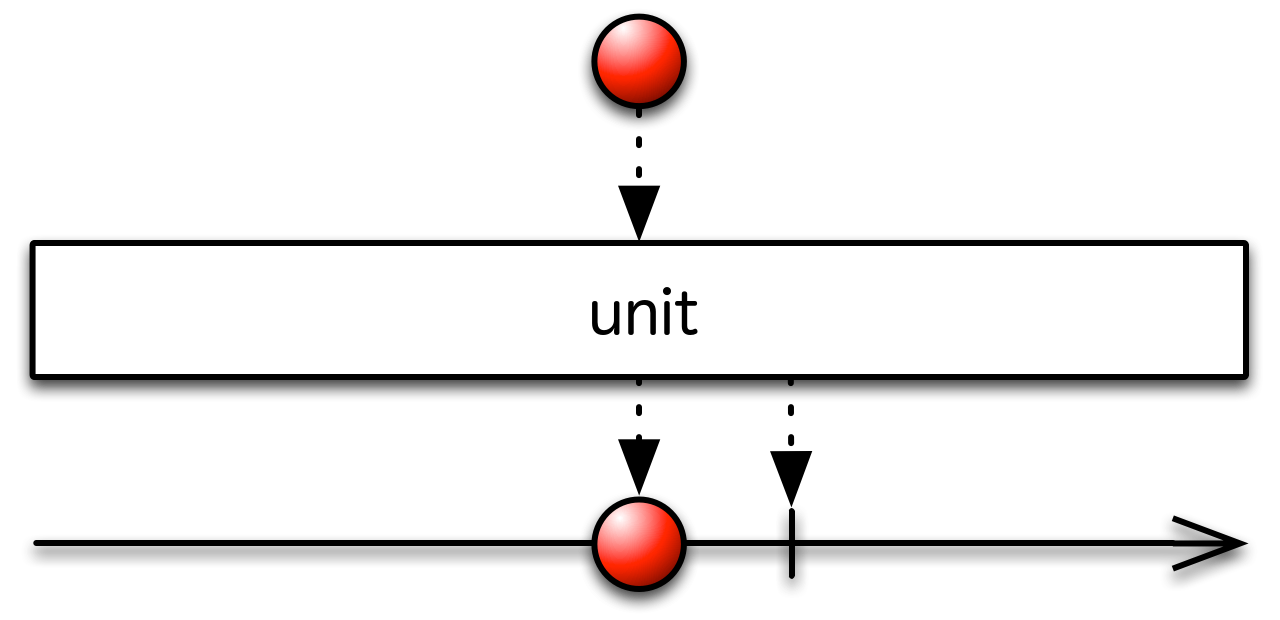
Implicit conversion from Future to Observable.
Creates an Observable that emits the given elements.
Creates an Observable that emits the given elements.
Usage sample:
val obs = Observable(1, 2, 3, 4) obs.dump("MyObservable").subscribe() //=> 0: MyObservable-->1 //=> 1: MyObservable-->2 //=> 2: MyObservable-->3 //=> 3: MyObservable-->4 //=> 4: MyObservable completed
Concatenates the given list of observables into a single observable.
Observable constructor for creating an Observable from the specified function.
Observable constructor for creating an Observable from the specified function.

Example:
import monifu.reactive._ import monifu.reactive.api.Ack.Continue import monifu.concurrent.Scheduler def emit[T](elem: T, nrOfTimes: Int)(implicit scheduler: Scheduler): Observable[T] = Observable.create { observer => def loop(times: Int): Unit = scheduler.scheduleOnce { if (times > 0) observer.onNext(elem).onSuccess { case Continue => loop(times - 1) } else observer.onComplete() } loop(nrOfTimes) } // usage sample import monifu.concurrent.Scheduler.Implicits.global emit(elem=30, nrOfTimes=3).dump("Emit").subscribe() //=> 0: Emit-->30 //=> 1: Emit-->30 //=> 2: Emit-->30 //=> 3: Emit completed
Creates an observable that doesn't emit anything, but immediately calls onComplete
instead.
Creates an observable that doesn't emit anything, but immediately calls onComplete
instead.

Creates an Observable that emits an error.
Creates an Observable that emits an error.

Concatenates the given list of observables into a single observable.
Creates an Observable that emits the elements of the given iterable.
Creates an Observable that emits the elements of the given iterable.

Converts a Future to an Observable.
Converts a Future to an Observable.

Creates an Observable that emits auto-incremented natural numbers (longs) spaced by a given time interval.
Creates an Observable that emits auto-incremented natural numbers (longs) spaced by
a given time interval. Starts from 0 with no delay, after which it emits incremented
numbers spaced by the period of time.

the delay between two subsequent events
the execution context in which onNext will get called
Merges the given list of observables into a single observable.
Creates an Observable that doesn't emit anything and that never completes.
Creates an Observable that doesn't emit anything and that never completes.

Creates an Observable that emits items in the given range.
Creates an Observable that emits items in the given range.

the range start
the range end
increment step, either positive or negative
Creates an Observable that continuously emits the given item repeatedly.
Creates an Observable that only emits the given a
Creates an Observable that only emits the given a

Creates a new Observable from three observables, by emitting elements combined in tuples of 4 elements.
Creates a new Observable from three observables, by emitting elements combined in tuples of 4 elements. If one of the Observable emits fewer events than the others, then the rest of the unpaired events are ignored.
Creates a new Observable from three observables, by emitting elements combined in tuples of 3 elements.
Creates a new Observable from three observables, by emitting elements combined in tuples of 3 elements. If one of the Observable emits fewer events than the others, then the rest of the unpaired events are ignored.
Creates a new Observable from two observables, by emitting elements combined in pairs.
Creates a new Observable from two observables, by emitting elements combined in pairs. If one of the Observable emits fewer events than the other, then the rest of the unpaired events are ignored.